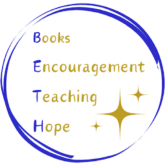Many, perhaps most, of us know someone who deals with dementia. My first encounter with dementia was when I was in my early teen years, although that word was not commonly used then. We’d go over to visit my paternal grandparents, and Grandma would say, “Father is confused today.” We accepted this confusion as part of the package of Grandpa’s aging, although I never liked the fact that Grandma would say that with Grandpa there in the room. Later, my dad dealt with increasing dementia, especially after breaking his hip at age 95 and experiencing the surgery, medication, and going into a nursing home that followed. It was heartbreaking to watch the deterioration of his memory – particularly the day he said, with tears in his eyes, “I forgot I had a home.” (As the effects of the surgery and medication wore off, shreds of memory returned, and that provoked those plaintive words.) I am grateful that through all that, he always recognized me and called me by name. His face would light up as I entered his room at the nursing home, and he’d say with joy, “Beth!” The look of joy and love on his face still buoy me up, nearly eight years after his death. Dementia is a difficult topic for adults to talk about, even now, and it’s even more difficult to know how to explain it to children. I recently read a picture book, The Remember Balloons, that does a wonderful job of giving an image that children can grasp, and that can open the discussion when a grandparent or other beloved person is struggling with the progress of Alzheimer Disease or some other dementia. For older children, who are reading middle grade novels, one of my favorite books, Cynthia Lord’s Half a Chance, does the same. I’d like to share briefly about both books, and would urge you to read them. Title: The Remember Balloons Author: Jessie Alveros Illustrator: Dana Wulfekotte Publisher: New York: Simon & Schuster, 2018 Genre: Picture book, fiction Audience Age: 4 to 8 years Themes/Topics: Dementia, remembering, families, love for grandparent Opening Sentences: I have lots and lots of balloons, way more than my little brother. “This one’s my favorite,” I tell him, pointing to the balloon filled with my last birthday party. Synopsis: James envisions balloons each filled with a memory. He has lots and lots, but his parents have more. Grandpa has the most of all, and James loves to hear the stories of each one. But one day, one of Grandpa’s balloons floats away, then more and more of them fly off, and Grandpa doesn’t seem to notice. James is distressed – particularly when the special silver balloon that holds the best memory shared by Grandpa and James disappears. James needs to find a way to deal with his distress and his sorrow, while somehow comforting Grandpa. For Further Enrichment: See a trailer for The Remember Balloons produced by Mooresville Public Library. Read and watch a video interview with the author about her inspiration and process for this book at the Epic Eighteen website. Find Jessie Oliveros’ website here. Find Dana Wulfekotte’s website here. Here’s a good article at Today’s Parent about talking to kids about dementia. Title: Half a Chance Author: Cynthia Lord Publisher: Scholastic, 2014. Genre: Middle Grade fiction Audience Age: 9 to 12 years Themes/Topics: Photography, parental absence, nature, loons, dementia Opening Sentences: “Lucy, we’re going to love this place!” Dad called to me from the porch of the faded, red-shingled cottage with white trim. … … “I’ll buy you a new bike when I get back, Lucy.” … … Dad always promises me things before he leaves and then forgets by the time he’s home again. Synopsis: Lucy and her family move to an old cottage on a lake in New Hampshire just before Dad, a photographer, leaves on yet another business trip. When Lucy learns about a photography contest, and finds out that her dad is judging it, she decides to enter. Through her photography that summer, she meets and gets to know the kid next door, Nate. He introduces her to the joys of the lake, and particularly the loons. She finds amazing subjects for her photographs, but her photographs of Nate’s grandma show what the family has been trying to deny – Grandma is slipping away from them into dementia. The family, and Lucy, have to find a way to deal with this, while Lucy continues to try to connect with her dad. This book moved me, inspired me, taught me, and delighted me. I have reread it more than once. I highly recommend it. For Further Enrichment: Cynthia Lord’s website is here. There are discussion questions for the book on Scholastic’s website. My friend, Patricia Tilton, wrote an excellent review for Half a Chance in 2014. Find resources and book suggestions for talking to kids about dementia from the National Institute on Aging here. Do you have any book suggestions to add, or thoughts to contribute? I’d love to know about them.
